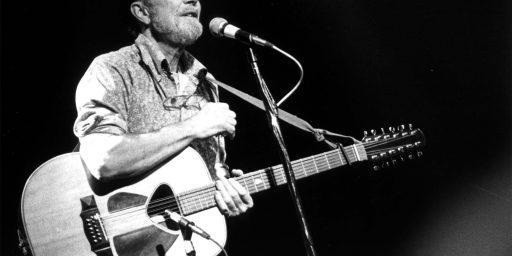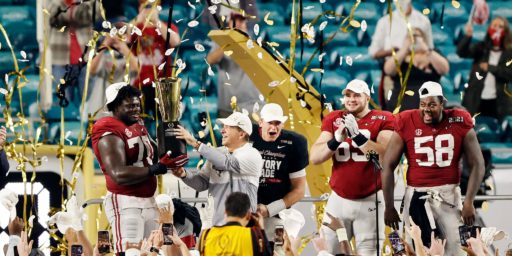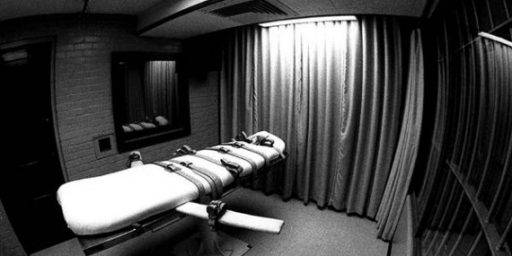Foul Ball
It didn’t change the result of Mr. Romo’s Wild Ride on Monday Night. But the national exposure of the abuse of the rules that is gamesmanship on late field goal tries (calling a timeout just as the deep snapper raises his head) has a lot of people talking about fixing the rule. Being a Raiders fan, I (unlike a lot of people) was actually watching the first two times this gimmick was used this year (in both of which cases, it did change the result of the contest).
I didn’t like it when it cost my team the win, and I didn’t like it any better when they used it to similar effect to hang onto a win the next week.
An artefact of the right to call timeouts themselves that coaches spent years arguing for, this trick is clearly not what the rule change (effected prior to the 2006 season) was meant to accomplish. Coaches wanted it so that they would be able to directly control clock management late in games. Icing kickers in one thing; changing the results of games is something else entirely.
But it goes further than that. When Nick Folk made his second kick Monday Night, the Bills were offsides. The game can’t end on a defensive penalty so, had he missed, the officials would have moved the ball 5 yards closer for a third try. The Bills still held another timeout, so they could have forced Folk to make the same try four times. I submit that a rule that allows such an absurd result is clearly broken (and let’s face it, we were one rookie kicker in his fifth game making a career-long attempt on the road away from this hypothetical being a reality).
When a player on the field is planning something like this, he and the official he’s got waiting for his timeout call are visible to everyone. One of the problems with coaches doing it is that they’re 30 yards away with the line judge, far away from where everyone’s attention is focused. It makes already long games even longer. And it just reeks of unsportsmanlike conduct.*
The quick and easy fix is to simply change the rule back. But there are very good reasons to let coaches call timeouts and they’ll be understandably upset if they lose that ability because a few coaches bent the rules. The best proposal I’ve seen is to not allow coaches to call timeouts when there’s less than 5 seconds on the playclock. There’s plenty of time before that to call one for game management purposes — or to tell a team captain to do so if they want to stop it with less time than that — and it eliminates this problem completely. So, notwithstanding the fact that my own team’s coach used it to snatch victory from the jaws of defeat, I sincerely hope that the Rules Committee will make this change (or a similar one) next offseason to fix this broken rule.
* Other, not entirely dissimilar, examples of which result in a penalty. The league and the fans would’ve been better off if the ref in the Raiders-Broncos game had exercised his discretion and ruled it a Palpably Unfair Act (15 yard penalty and disqualification if flagrant).





James,
Do you play golf? Because if you do, then you’ve certainly heard of the mulligan. If I were a kicker, I would love the chance the essentially practice the game-winning kick in real game conditions before actually having to make it.
The most famous recent example of the last-second time out was between UF & LSU. The 2nd winning kick was actually more accurate than the first kick! The kicker had a chance the test the wind, footing and distance just before he had to really make it! I bet kickers wouldn’t be so upset if the coaches kept it up with the late time outs. The LSU kicker sure didn’t seem to mind, as he sarcastically did the gator chomp after UF’s coach gave him a practice run at winning the game.
I started a paragraph about the inevitability of a coach losing a game because he tries this gimmick and the kicker makes the rekick after missing on the timeout, but culled it because the post was already too long. So, yes, there’s a chance that that makes the problem somewhat self-correcting, but not enough of a chance. I don’t think a coach who tries this and loses only because of will get in too much trouble. But I can see this becoming a “required” play and coaches getting ridden hard for not using it if they have the chance. And I don’t think that’s good for the game, even if some kickers won’t mind it.
When you do a Mulligan (which is outside the rules of real golf) you don’t have a bunch of other golfers trying to run you over again.
As a golfer, I must confess the last thing I want to do after I hit the ball 200 yards onto the green over water is to have someone run up and tell me: “sorry, that one didn’t count, so do it again.”
A mulligan, properly defined is getting to hit the ball again because you screwed up the first shot (and is against the rules). Having made a kick and then being told you have to make it again is not, in any way, equivalent to a mulligan.
In the interest of adding still more mixed sports metaphors to this discussion, let me just say that Steven just knocked that one out of the park.
I do think that this fad will die down once someone in the pros misses the first FG and makes the second after the use of this tactic. It won’t eliminate it, but it will give more coaches pause.